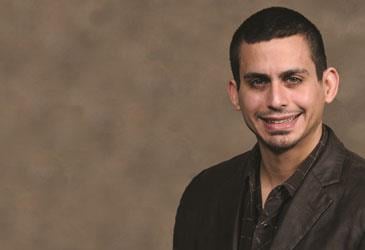Diversity in the medical profession and health equity for minority populations have stepped into the spotlight with the recognition of 21 medical students as future minority physician leaders. Find out who they are and how they plan to succeed while promoting diversity in medical education.
Research shows that diversifying the physician workforce can reduce health disparities and improve patient outcomes among minority patient populations. Yet less than 9 percent of U.S. physicians actually have African-American, Hispanic, Native American, Native Hawaiian or Alaska Native heritages, according to AMA data.
That’s where the AMA Foundation’s Minority Scholars Award comes in. The annual award gives $10,000 scholarships to first- and second-year students who demonstrate high academic achievement and a commitment to improving minority health.
This year’s awardees hail from medical schools across the country—spanning more than a dozen states—and represent culturally diverse experiences in training, including international medical school graduates. Here’s what they have to say about the support students need to thrive in training, facing cultural adversity and improving health disparities.
What fuels their passion for health equity
Improving health disparities is a necessary but complex task for physicians. Here’s why these medical students say they’re committed to the cause. 
“I enjoy giving back, having an impact in the community, and being a leader within organizations such as the AMA and the Latino Medical Student Association (LMSA),” said Franklyn Rocha-Cabrero, a third-year student at University of Illinois College of Medicine-Rockford.
For other awardees, the passion has roots in early personal experiences.
“My grandfather had multiple heart attacks when I was child, which sparked my interest in the cardiovascular system,” said Denise M. Kimbrough, PhD, a second-year student at the Medical University of South Carolina, College of Medicine. “What stuck out the most was after each visit, his surgeon would sit with the family and insist that my grandfather needed a good primary care physician and cardiologist to follow up with.”
“He could have chosen to just continue to see my grandfather and perform surgery after surgery, but instead he saw a man who lacked good preventative care,” Kimbrough said. “He saw a person whom he felt he didn’t need to keep seeing [in the hospital], and he made a suggestion that was not beneficial to him [as a surgeon] but that was instead the right choice for his patient. ... In that act, I could see myself helping another family, so that they too got to spend more time with their loved ones, and I knew medicine was for me.”
Kimbrough is a recipient of the Dr. Richard Allen Williams and Genita Evangelista Johnson/Association of Black Cardiologists Award, a special scholarship given as part of the Minority Scholars Award to promote diversity in medicine and support future African-American cardiologists.
Advice for students coping with cultural adversity
No two students’ experiences are the same, but taking certain measures can help build resiliency for those who grapple with cultural challenges in training.
“It is challenging to be a student of color in any profession, but [it] can be more profound in schools where you might be one of the few in your class,” Rocha-Cabrero said. “Surround yourself with mentors and administration that are legitimately interested in helping you succeed. Don’t be afraid to reach out to advisors you trust and be honest about the issues you have encountered or need help with.”
Kimbrough also noted that minority students should share their opinions and perspectives. “The one thing I have learned is that if you don’t speak up, you can’t be heard,” she said. “So voice your opinion, respectfully of course, [and] make sure people pay attention.”
How they plan to address health disparities
Minority Scholars have plans in mind for how they will make a difference as future physician leaders, and much of that will start in the exam room.
“As a physician, [I’d like to] continue to promote appropriate patient education in a manner that is well received by the population in which I serve,” said Kendrick Kennedy, a second-year student at the Medical University of South Carolina, College of Medicine.
Kennedy noted that heart disease and stroke are the No. 1 and No. 4 killers of Americans, respectively. But the risk of acquiring these diseases is significantly higher for African Americans.
“[My] ultimate goal is to facilitate open communication between the provider and the patient while also assisting with the promotion of progressive health behaviors,” Kennedy said. “With proper health education and continuous exposure to diverse teaching methods, [I believe] we will begin to reduce the number of [patients] with diseases that are associated with the progression of cardiovascular illnesses.”
Kimbrough also pointed to the importance of educating patients about representation in clinical studies and participating in research.
“Current cardiovascular therapies are often not tested on representative populations; therefore, breakthrough drugs are truly only a breakthrough for certain individuals,” she said. “I hope to use my position as a physician to encourage minorities to participate in these studies by conveying the importance to them.”
The Minority Scholars Awards are given in partnership with the AMA Minority Affairs Section and the AMA Foundation. To learn more about this year’s winners, see the list of all 21 Minority Scholars. Applications for the award will open in the winter, so be sure to tune into AMA Wire® for details on how to apply.
For more on diversity and health disparities
- See how these medical schools are tackling challenges in health disparities and cultural competencies.
- Educate yourself and your peers on the 5 myths of diversity in med ed.
- Watch this Google hangout to learn more ways schools and students are promoting diversity in medical education.






